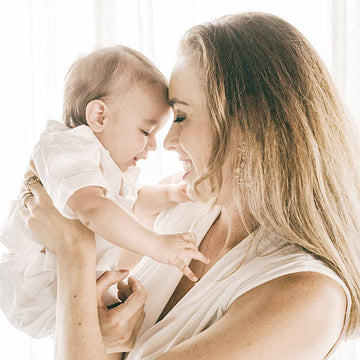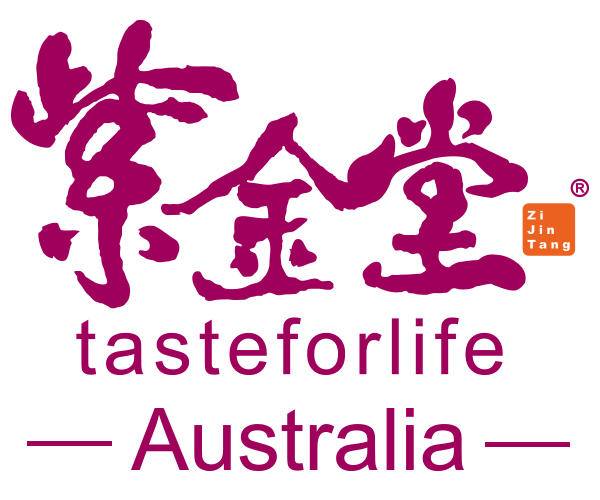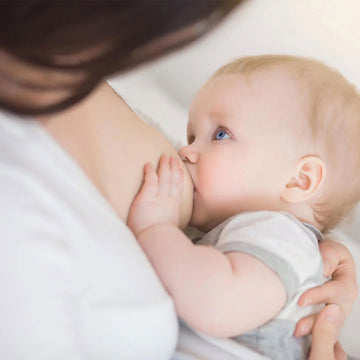Postpartum Confinement Meals: What Are They and Why New Mums Need Them
by Taste For LifeZi JIn Tang 紫金堂澳洲 on Nov 23, 2023

Postpartum confinement is becoming increasingly mainstream in Australia. And it’s an absolutely incredible concept that we are 100% behind.
Essentially it involves 30 days of care for not just your newborn, but for you too. This means not having to worry about cooking meals for yourself and instead allowing your body a chance to heal while dishing up ready-made confinement meals that promote faster postpartum recovery, and we’re all for it!

What is postpartum confinement eating and why should we get on board?
The philosophy and practice of Chinese postpartum confinement (also known as “sitting the month”) can be tricky for many new mums and their partners to grasp, let alone embrace. The concept of the mother of a newborn only eating certain foods, spending her time resting (yes really!) and giving up having to rush out and about seems like an impractical for most of us.
Instead, our reality is to give birth one day, be discharged the next and start overnight feeds almost immediately.
However, for many new mums in Australia from an Asian background, the practice is embraced wholeheartedly. It is believed that a lot of Qi, energy and blood is lost during childbirth, so it is necessary to replenish these and re-balance the body after childbirth through rest, recovery and nutrition. It is deeply rooted in Chinese culture and practised across Asia as well as in some countries in the Middle East.
FUN FACT:
Based on traditional Chinese medicine (TCM), it is believed that nutritiously balanced herbal-based confinement meals and the practice of confinement itself lend themselves to faster postpartum recovery. In fact, studies show there are far less incidences of postpartum depression when the mother is prioritised as much as her child.
Postpartum recovery confinement meals: How it works
The postpartum 3-stage Progressive Recovery Plan incorporates 3 important stages for afterbirth recovery:

Postpartum confinement recovery meal plans include concentrated herbal soups, rice water, and postpartum teas.
Taste for Life Australia postpartum confinement meal plan
Taste for Life Australia’s postpartum confinement ready-made meals deliver 30 days of meals for new mums.
Stage 1 Metabolism (Day 1-10)
This stage revitalises the internal organs of the body, increases metabolism and alleviates any water retention after giving birth.
The meals’ nutrients and herbal ingredients are designed to strengthen the womb, liver and kidneys, adjust the digestion system and subtly help greater absorption of the nutrients.
These nutrients include Protein, Iron and Folic Acid as they are important to this stage. Iron helps with red blood cell production and can help combat postpartum fatigue.
Stage 2 Restoration (Day 11-20)
This stage helps strengthen the spine and bones internally and externally. The focus is on restoring hormones, re-balancing the body, helping with breastfeeding and helping shrink the womb.
Calcium and Collagen are the key nutrients in this stage. Calcium is essential for strong bones and teeth, and it can also help prevent postpartum osteoporosis. Calcium-rich foods include dairy products, leafy greens, and fortified cereals.
Stage 3 Nourish (Day 21-30)
This stage aims to restore and revitalise the postpartum body at a fast rate. Meals contain a high level of Collagen and Vitamins B and E, which help shrink the womb further. A welcome bi-product is that these nutrients also help to increase skin moisture and elasticity and slow down the appearance of ageing.
A fourth trimester must!
What we love about a postpartum confinement meal plan is that it’s just for new mums during the ever-important fourth trimester.
Often we go from pregnancy (where it’s so important that we are taken care of), to postpartum (where it becomes all about our baby). Newborns need so much love and attention and, while it’s a dream come true to be able to provide this for them it’s also incredibly draining.
Postpartum confinement focuses on this ever-important fourth trimester but it nurtures mums. This is something every new mum needs and deserves.
‘The best chance to recover and re-cooperate after giving birth’
The tradition of postpartum confinement is on the rise. Not just among Australians with Asian heritage, but it’s also resonating with couples where only one partner identifies with Asian ancestry and the other doesn’t. It’s heartwarming to see such a cultural amalgamation.
Take Teresa and Joseph Spano and their baby Isabella as a prime example. Teresa’s roots trace back to Chinese-Australian heritage, while Joseph has an Italian-Australian background. Together, they’ve combined and celebrated their distinct traditions during their postpartum journey.
Recently, the duo had a sit-down with Nicole Chien, Head Nutritionist and Founder of Taste for Life Australia, who specialises in postpartum ready-made meals based on TMC and Chinese herbal nutrition. Nicole, with her expertise, focuses on postpartum meals that incorporate TMC and Chinese herbal nutrition.

“Teresa was very firm about wanting to do [post-partum] including the eating element of it – her mother had done it and so had her grandmother. It was an important part of her cultural inheritance and it totally made sense to her,” Joseph explains.
“Coming from a European Australian background I had to get my head around it at first, to be honest, but I totally agreed that we should get on board with the confinement meals as they are designed to help the female body in its healing process postpartum which is important whatever culture you come from. Teresa believed it was her best chance to recover and re-cooperate after giving birth.”
“Going through the postpartum confinement experience and the thinking behind the diet was very enlightening to me.”
“All very easy”
Teresa was determined to practice and follow the Chinese confinement tradition. The couple combined fresh fish and meat from their local butcher with Taste for Life ready-made confinement meals.
“It was so important to me but I did worry about the practicalities of it all. In Taiwan where there are special centres where you can go after giving birth with nurses, lactation consultants, dietitians and chefs but here that doesn’t exist.”
“The most challenging aspect for me was organising meals around the three stages or recovery, so the ready-made meals helped with that,” he said.
In addition to the confinement meals, the couple had help from Teresa’s aunt to help with the confinement process and to allow Teresa to heal for 30 days.
“Luckily my aunt was able to come over to help me and the baby. She did cook but used Taste for Life’s ready-made confinement herbal soup packs as some of the herbs are simply not available here. She added the protein and vegetables Joseph had bought to the soup bases and it was all very easy.
The soup bases take no more than 5 minutes to heat. The herbs in these soups are extracted using the latest technologies. This allows for better absorption by the body,” Teresa explains.

Does she have any regrets about the confinement?
“Not at all! The body needs to recover after giving birth, it can even be in shock especially if you have had a C-section. Confinement gives you the rest and the recovery time and the nutrition to really bounce back and be at your best for your baby and yourself.” she said.




